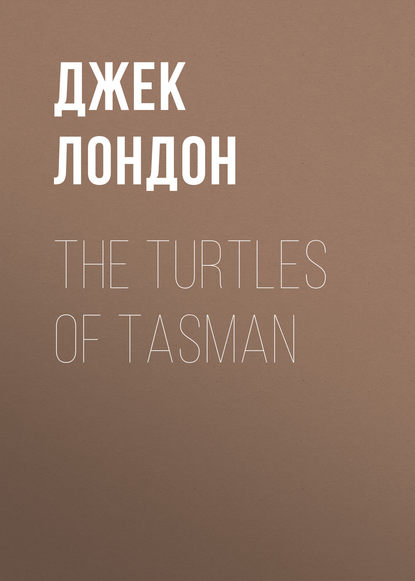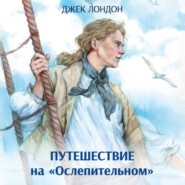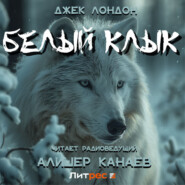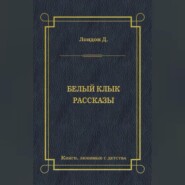По всем вопросам обращайтесь на: info@litportal.ru
(©) 2003-2024.
✖
The Turtles of Tasman
Настройки чтения
Размер шрифта
Высота строк
Поля
"You can write 'Honourable' before your name," she flashed up proudly. "But my father has been a king. He has lived. Have you lived? What have you got to show for it? Stocks and bonds, and houses and servants – pouf! Heart and arteries and a steady hand – is that all? Have you lived merely to live? Were you afraid to die? I'd rather sing one wild song and burst my heart with it, than live a thousand years watching my digestion and being afraid of the wet. When you are dust, my father will be ashes. That is the difference."
"But my dear child – " he began.
"What have you got to show for it?" she flamed on. "Listen!"
From within, through the open window, came the tinkling of Tom's ukulele and the rollicking lilt of his voice in an Hawaiian hula. It ended in a throbbing, primitive love-call from the sensuous tropic night that no one could mistake. There was a burst of young voices, and a clamour for more. Frederick did not speak. He had sensed something vague and significant.
Turning, he glanced through the window at Tom, flushed and royal, surrounded by the young men and women, under his Viking moustache lighting a cigarette from a match held to him by one of the girls. It abruptly struck Frederick that never had he lighted a cigar at a match held in a woman's hand.
"Doctor Tyler says he oughtn't to smoke – it only aggravates," he said; and it was all he could say.
As the fall of the year came on, a new type of men began to frequent the house. They proudly called themselves "sour-doughs," and they were arriving in San Francisco on the winter's furlough from the gold-diggings of Alaska. More and more of them came, and they pre-empted a large portion of one of the down-town hotels. Captain Tom was fading with the season, and almost lived in the big chair. He drowsed oftener and longer, but whenever he awoke he was surrounded by his court of young people, or there was some comrade waiting to sit and yarn about the old gold days and plan for the new gold days.
For Tom – Husky Travers, the Yukoners named him – never thought that the end approached. A temporary illness, he called it, the natural enfeeblement following upon a prolonged bout with Yucatan fever. In the spring he would be right and fit again. Cold weather was what he needed. His blood had been cooked. In the meantime it was a case of take it easy and make the most of the rest.
And no one undeceived him – not even the Yukoners, who smoked pipes and black cigars and chewed tobacco on Frederick's broad verandas until he felt like an intruder in his own house. There was no touch with them. They regarded him as a stranger to be tolerated. They came to see Tom. And their manner of seeing him was provocative of innocent envy pangs to Frederick. Day after day he watched them. He would see the Yukoners meet, perhaps one just leaving the sick room and one just going in. They would clasp hands, solemnly and silently, outside the door. The newcomer would question with his eyes, and the other would shake his head. And more than once Frederick noted the moisture in their eyes. Then the newcomer would enter and draw his chair up to Tom's, and with jovial voice proceed to plan the outfitting for the exploration of the upper Kuskokeem; for it was there Tom was bound in the spring. Dogs could be had at Larabee's – a clean breed, too, with no taint of the soft Southland strains. It was rough country, it was reported, but if sour-doughs couldn't make the traverse from Larabee's in forty days they'd like to see a chechako do it in sixty.
And so it went, until Frederick wondered, when he came to die, if there was one man in the county, much less in the adjoining county, who would come to him at his bedside.
Seated at his desk, through the open windows would drift whiffs of strong tobacco and rumbling voices, and he could not help catching snatches of what the Yukoners talked.
"D'ye recollect that Koyokuk rush in the early nineties?" he would hear one say. "Well, him an' me was pardners then, tradin' an' such. We had a dinky little steamboat, the Blatterbat. He named her that, an' it stuck. He was a caution. Well, sir, as I was sayin', him an' me loaded the little Blatterbat to the guards an' started up the Koyokuk, me firin' an' engineerin' an' him steerin', an' both of us deck-handin'. Once in a while we'd tie to the bank an' cut firewood. It was the fall, an' mush-ice was comin' down, an' everything gettin' ready for the freeze up. You see, we was north of the Arctic Circle then an' still headin' north. But they was two hundred miners in there needin' grub if they wintered, an' we had the grub.
"Well, sir, pretty soon they begun to pass us, driftin' down the river in canoes an' rafts. They was pullin' out. We kept track of them. When a hundred an' ninety-four had passed, we didn't see no reason for keepin' on. So we turned tail and started down. A cold snap had come, an' the water was fallin' fast, an' dang me if we didn't ground on a bar – up-stream side. The Blatterbat hung up solid. Couldn't budge her. 'It's a shame to waste all that grub,' says I, just as we was pullin' out in a canoe. 'Let's stay an' eat it,' says he. An' dang me if we didn't. We wintered right there on the Blatterbat, huntin' and tradin' with the Indians, an' when the river broke next year we brung down eight thousand dollars' worth of skins. Now a whole winter, just two of us, is goin' some. But never a cross word out of him. Best-tempered pardner I ever seen. But fight!"
"Huh!" came the other voice. "I remember the winter Oily Jones allowed he'd clean out Forty Mile. Only he didn't, for about the second yap he let off he ran afoul of Husky Travers. It was in the White Caribou. 'I'm a wolf!' yaps Jones. You know his style, a gun in his belt, fringes on his moccasins, and long hair down his back. 'I'm a wolf,' he yaps, 'an' this is my night to howl. Hear me, you long lean makeshift of a human critter?' – an' this to Husky Travers."
"Well?" the other voice queried, after a pause.
"In about a second an' a half Oily Jones was on the floor an' Husky on top askin' somebody kindly to pass him a butcher knife. What's he do but plumb hack off all of Oily Jones' long hair. 'Now howl, damn you, howl,' says Husky, gettin' up."
"He was a cool one, for a wild one," the first voice took up. "I seen him buck roulette in the Little Wolverine, drop nine thousand in two hours, borrow some more, win it back in fifteen minutes, buy the drinks, an' cash in – dang me, all in fifteen minutes."
One evening Tom was unusually brightly awake, and Frederick, joining the rapt young circle, sat and listened to his brother's serio-comic narrative of the night of wreck on the island of Blang; of the swim through the sharks where half the crew was lost; of the great pearl which Desay brought ashore with him; of the head-decorated palisade that surrounded the grass palace wherein dwelt the Malay queen with her royal consort, a shipwrecked Chinese Eurasian; of the intrigue for the pearl of Desay; of mad feasts and dances in the barbaric night, and quick dangers and sudden deaths; of the queen's love-making to Desay, of Desay's love-making to the queen's daughter, and of Desay, every joint crushed, still alive, staked out on the reef at low tide to be eaten by the sharks; of the coming of the plague; of the beating of tom-toms and the exorcising of the devil-devil doctors; of the flight over the man-trapped, wild-pig runs of the mountain bush-men; and of the final rescue by Tasman, he who was hatcheted only last year and whose head reposed in some Melanesian stronghold – and all breathing of the warmth and abandon and savagery of the burning islands of the sun.
And despite himself, Frederick sat entranced; and when all the tale was told, he was aware of a queer emptiness. He remembered back to his boyhood, when he had pored over the illustrations in the old-fashioned geography. He, too, had dreamed of amazing adventure in far places and desired to go out on the shining ways. And he had planned to go; yet he had known only work and duty. Perhaps that was the difference. Perhaps that was the secret of the strange wisdom in his brother's eyes. For the moment, faint and far, vicariously, he glimpsed the lordly vision his brother had seen. He remembered a sharp saying of Polly's. "You have missed romance. You traded it for dividends." She was right, and yet, not fair. He had wanted romance, but the work had been placed ready to his hand. He had toiled and moiled, day and night, and been faithful to his trust. Yet he had missed love and the world-living that was forever a-whisper in his brother. And what had Tom done to deserve it? – a wastrel and an idle singer of songs.
His place was high. He was going to be the next governor of California. But what man would come to him and lie to him out of love? The thought of all his property seemed to put a dry and gritty taste in his mouth. Property! Now that he looked at it, one thousand dollars was like any other thousand dollars; and one day (of his days) was like any other day. He had never made the pictures in the geography come true. He had not struck his man, nor lighted his cigar at a match held in a woman's hand. A man could sleep in only one bed at a time – Tom had said that. He shuddered as he strove to estimate how many beds he owned, how many blankets he had bought. And all the beds and blankets would not buy one man to come from the end of the earth, and grip his hand, and cry, "By the turtles of Tasman!"
Something of all this he told Polly, an undercurrent of complaint at the unfairness of things in his tale. And she had answered:
"It couldn't have been otherwise. Father bought it. He never drove bargains. It was a royal thing, and he paid for it royally. You grudged the price, don't you see. You saved your arteries and your money and kept your feet dry."
VI
On an afternoon in the late fall all were gathered about the big chair and Captain Tom. Though he did not know it, he had drowsed the whole day through and only just awakened to call for his ukulele and light a cigarette at Polly's hand. But the ukulele lay idle on his arm, and though the pine logs crackled in the huge fireplace he shivered and took note of the cold.
"It's a good sign," he said, unaware that the faintness of his voice drew the heads of his listeners closer. "The cold weather will be a tonic. It's a hard job to work the tropics out of one's blood. But I'm beginning to shape up now for the Kuskokeem. In the spring, Polly, we start with the dogs, and you'll see the midnight sun. How your mother would have liked the trip. She was a game one. Forty sleeps with the dogs, and we'll be shaking out yellow nuggets from the moss-roots. Larabee has some fine animals. I know the breed. They're timber wolves, that's what they are, big grey timber wolves, though they sport brown about one in a litter – isn't that right, Bennington?"
"One in a litter, that's just about the average," Bennington, the Yukoner, replied promptly, but in a voice hoarsely unrecognisable.
"And you must never travel alone with them," Captain Tom went on. "For if you fall down they'll jump you. Larabee's brutes only respect a man when he stands upright on his legs. When he goes down, he's meat. I remember coming over the divide from Tanana to Circle City. That was before the Klondike strike. It was in '94 … no, '95, and the bottom had dropped out of the thermometer. There was a young Canadian with the outfit. His name was it was … a peculiar one … wait a minute it will come to me…"
His voice ceased utterly, though his lips still moved. A look of unbelief and vast surprise dawned on his face. Followed a sharp, convulsive shudder. And in that moment, without warning, he saw Death. He looked clear-eyed and steady, as if pondering, then turned to Polly. His hand moved impotently, as if to reach hers, and when he found it, his fingers could not close. He gazed at her with a great smile that slowly faded. The eyes drooped as the life went out, and remained a face of quietude and repose. The ukulele clattered to the floor. One by one they went softly from the room, leaving Polly alone.
From the veranda, Frederick watched a man coming up the driveway. By the roll of the sea in his walk, Frederick could guess for whom the stranger came. The face was swarthy with sun and wrinkled with age that was given the lie by the briskness of his movements and the alertness in the keen black eyes. In the lobe of each ear was a tiny circlet of gold.
"How do you do, sir," the man said, and it was patent that English was not the tongue he had learned at his mother's knee. "How's Captain Tom? They told me in the town that he was sick."
"My brother is dead," Frederick answered.
The stranger turned his head and gazed out over the park-like grounds and up to the distant redwood peaks, and Frederick noted that he swallowed with an effort.
"By the turtles of Tasman, he was a man," he said, in a deep, changed voice.
"By the turtles of Tasman, he was a man," Frederick repeated; nor did he stumble over the unaccustomed oath.
THE ETERNITY OF FORMS
A strange life has come to an end in the death of Mr. Sedley Crayden, of Crayden Hill.
Mild, harmless, he was the victim of a strange delusion that kept him pinned, night and day, in his chair for the last two years of his life. The mysterious death, or, rather, disappearance, of his elder brother, James Crayden, seems to have preyed upon his mind, for it was shortly after that event that his delusion began to manifest itself.
Mr. Crayden never vouchsafed any explanation of his strange conduct. There was nothing the matter with him physically; and, mentally, the alienists found him normal in every way save for his one remarkable idiosyncrasy. His remaining in his chair was purely voluntary, an act of his own will. And now he is dead, and the mystery remains unsolved.
– Extract from the Newton Courier-Times.
Briefly, I was Mr. Sedley Crayden's confidential servant and valet for the last eight months of his life. During that time he wrote a great deal in a manuscript that he kept always beside him, except when he drowsed or slept, at which times he invariably locked it in a desk drawer close to his hand.
I was curious to read what the old gentleman wrote, but he was too cautious and cunning. I never got a peep at the manuscript. If he were engaged upon it when I attended on him, he covered the top sheet with a large blotter. It was I who found him dead in his chair, and it was then that I took the liberty of abstracting the manuscript. I was very curious to read it, and I have no excuses to offer.
After retaining it in my secret possession for several years, and after ascertaining that Mr. Crayden left no surviving relatives, I have decided to make the nature of the manuscript known. It is very long, and I have omitted nearly all of it, giving only the more lucid fragments. It bears all the earmarks of a disordered mind, and various experiences are repeated over and over, while much is so vague and incoherent as to defy comprehension. Nevertheless, from reading it myself, I venture to predict that if an excavation is made in the main basement, somewhere in the vicinity of the foundation of the great chimney, a collection of bones will be found which should very closely resemble those which James Crayden once clothed in mortal flesh.
– Statement of Rudolph Heckler.
Here follows the excerpts from the manuscript, made and arranged by Rudolph Heckler:
I never killed my brother. Let this be my first word and my last. Why should I kill him? We lived together in unbroken harmony for twenty years. We were old men, and the fires and tempers of youth had long since burned out. We never disagreed even over the most trivial things. Never was there such amity as ours. We were scholars. We cared nothing for the outside world. Our companionship and our books were all-satisfying. Never were there such talks as we held. Many a night we have sat up till two and three in the morning, conversing, weighing opinions and judgments, referring to authorities – in short, we lived at high and friendly intellectual altitudes.
He disappeared. I suffered a great shock. Why should he have disappeared? Where could he have gone? It was very strange. I was stunned. They say I was very sick for weeks. It was brain fever. This was caused by his inexplicable disappearance. It was at the beginning of the experience I hope here to relate, that he disappeared.
How I have endeavoured to find him. I am not an excessively rich man, yet have I offered continually increasing rewards. I have advertised in all the papers, and sought the aid of all the detective bureaus. At the present moment, the rewards I have out aggregate over fifty thousand dollars.
They say he was murdered. They also say murder will out. Then I say, why does not his murder come out? Who did it? Where is he? Where is Jim? My Jim?
We were so happy together. He had a remarkable mind, a most remarkable mind, so firmly founded, so widely informed, so rigidly logical, that it was not at all strange that we agreed in all things. Dissension was unknown between us. Jim was the most truthful man I have ever met. In this, too, we were similar, as we were similar in our intellectual honesty. We never sacrificed truth to make a point. We had no points to make, we so thoroughly agreed. It is absurd to think that we could disagree on anything under the sun.
I wish he would come back. Why did he go? Who can ever explain it? I am lonely now, and depressed with grave forebodings – frightened by terrors that are of the mind and that put at naught all that my mind has ever conceived. Form is mutable. This is the last word of positive science. The dead do not come back. This is incontrovertible. The dead are dead, and that is the end of it, and of them. And yet I have had experiences here – here, in this very room, at this very desk, that – But wait. Let me put it down in black and white, in words simple and unmistakable. Let me ask some questions. Who mislays my pen? That is what I desire to know. Who uses up my ink so rapidly? Not I. And yet the ink goes.

















